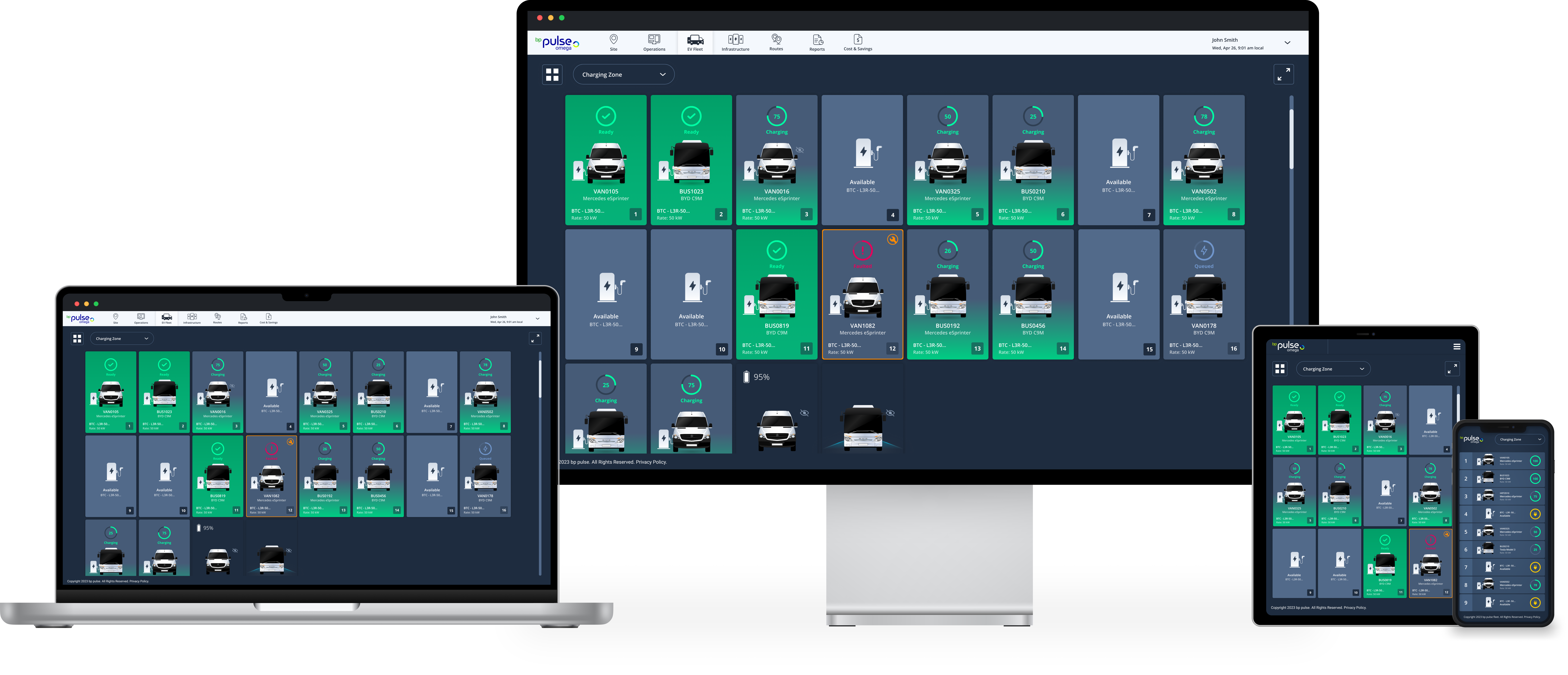Why your fleet needs managed charging to ensure EV uptime
When choosing how to operate EVs, fleets should understand the difference between unmanaged charging, smart charging, and managed charging.

In the world of fleet electrification, operators are presented with a variety of choices, and to date, emphasis has been on vehicle and charger selection. What is often overlooked, but equally important, is what happens after those decisions are made. Determining when and how to charge has an enormous impact on the operating experience and cost of electrification. Navigating all of this can be overwhelming.
When choosing how to manage charging, fleets should understand the difference between:
- Unmanaged charging – charging without any software or integrated equipment
- Smart charging – charging tech that provides a minimal level of automated controls, such as being able to turn the charger on/off remotely
- Managed charging – fully integrated software that automates charging for duty cycles, energy costs, vehicle and equipment uptime, and more.
Unmanaged vs. smart charging
With unmanaged charging, fleet operators physically plug-in and unplug EVs at any time that is convenient. This manual process often doesn’t take into account the local utility’s time-of-use rates, demand charges, or site capacity. With rates fluctuating up to 400% in one day, unpredictable energy costs could result in significantly more spent on energy costs.
Smart charging is a step up from unmanaged charging. While the intent is not to be deceptive, ‘smart’ simply means the charging technology has a Wi-Fi connection, enabling passive visibility to the data. The software included in the charger could allow fleets to turn the charger on and off remotely, set timeframes for charging, and identify power draw and energy costs.
Benefits of managed charging
Managed charging uses cloud-based software that automatically adapts to fleet operations. In addition to being able to remotely control charging, it also takes into account duty-cycles, energy consumption, utility rates, demand responses, equipment faults, and more–automatically responding to this real-time data. With this comprehensive approach, fleet operators can take a back seat to operating their EV charging while improving costs, and vehicle and equipment uptime.
Through our charge management software (CMS) Omega, fleets can ensure 99.9% platform uptime–the only CMS on the market that can make this guarantee. In addition to being a cloud-based software, we also install an onsite site controller that manages energy capacity at the site, which keeps power draw within utility limits and provides backup energy management.
Real-world success stories
We’ve found that EV fleets can save as much as 42% when using a managed charging strategy over unmanaged charging. Take three of our customers for example:
- Red Hook Terminals –the harbor barge operator deployed 10 electric yard tractors to reduce emissions from their fleet operations. Unfamiliar with managing electricity as a fuel, Red Hook realized the need for managed charging. In order to solve for fluctuating utility charging rates. After their first full quarter of managed charging with Omega, the fleet was able to start 95% of their trips with a 99% state of charge–well beyond their projections and made possible by our platform’s uptime guarantee ensuring access to fleet data.
- Palermo Union Elementary School District –After electrifying 80% of their school buses, the school district realized the need to manage charging to reduce energy costs and make sure the buses were ready at the start of the day. We helped Palermo save 50% of their previous electricity costs from their unmanaged EV fleet charging.
- Tri Delta –The transit agency embarked on their electrification journey without a charge management strategy, and after receiving exorbitantly high energy bills, sought Omega CMS to minimize utility demand charges. By employing managed charging for the EV bus fleet, Tri Delta was able to save 40% on their energy costs.
Get started today
Fleet operators should be able to focus on their core business of moving goods and people, not managing charging. Let us put your EV fleet charging on autopilot with charge management software, while guaranteeing our platform will always be there to keep your fleet running smoothly.
Date
6 March 2023
author

Meg Dinga
Senior Director, Marketing Operations & Special Projects, bp pulse fleet
Topics